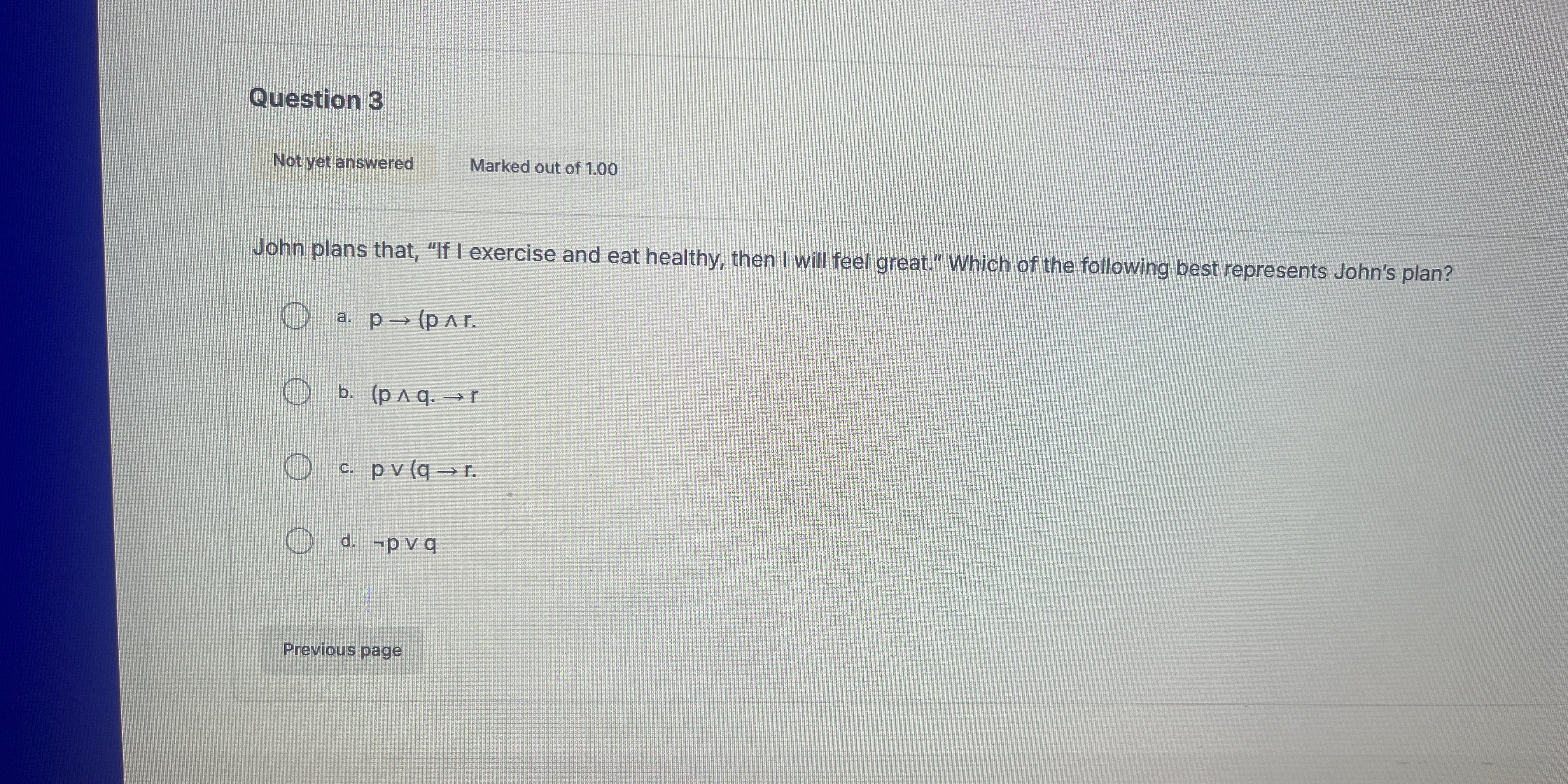John plans that, 'If I exercise and eat healthy, then I will feel great.' Which of the following best represents John's plan?

Understand the Problem
The question is asking which logical expression best represents John's plan regarding his exercise and healthy eating habits leading to feeling great. The options provided are different forms of logical statements.
Answer
$ (p \land q) \to r $
Answer for screen readers
The best representation of John's plan is:
$ (p \land q) \to r $
Steps to Solve
- Identify the components of the statement
The original statement is: "If I exercise and eat healthy, then I will feel great."
Let:
- $p$: "I exercise"
- $q$: "I eat healthy"
- $r$: "I feel great"
- Formulate the logical expression
The statement can be expressed as a logical implication. It reads as:
$$ (p \land q) \to r $$
This means if both $p$ (I exercise) and $q$ (I eat healthy) are true, then $r$ (I feel great) is true.
- Match with the answer choices
Now, let's check the options:
- a. $p \to (p \land r)$
- b. $(p \land q) \to r$
- c. $p \lor (q \to r)$
- d. $\neg p \lor q$
From our formulation, option b matches what we derived.
The best representation of John's plan is:
$ (p \land q) \to r $
More Information
This logical expression shows a conditional relationship where both exercising and eating healthy lead to feeling great. It's a standard way of expressing implications in logic.
Tips
- Confusing the "and" ($\land$) with "or" ($\lor$), leading to an incorrect logical expression.
- Overlooking how to correctly structure implications, thus selecting an option that doesn't represent the condition properly.
AI-generated content may contain errors. Please verify critical information